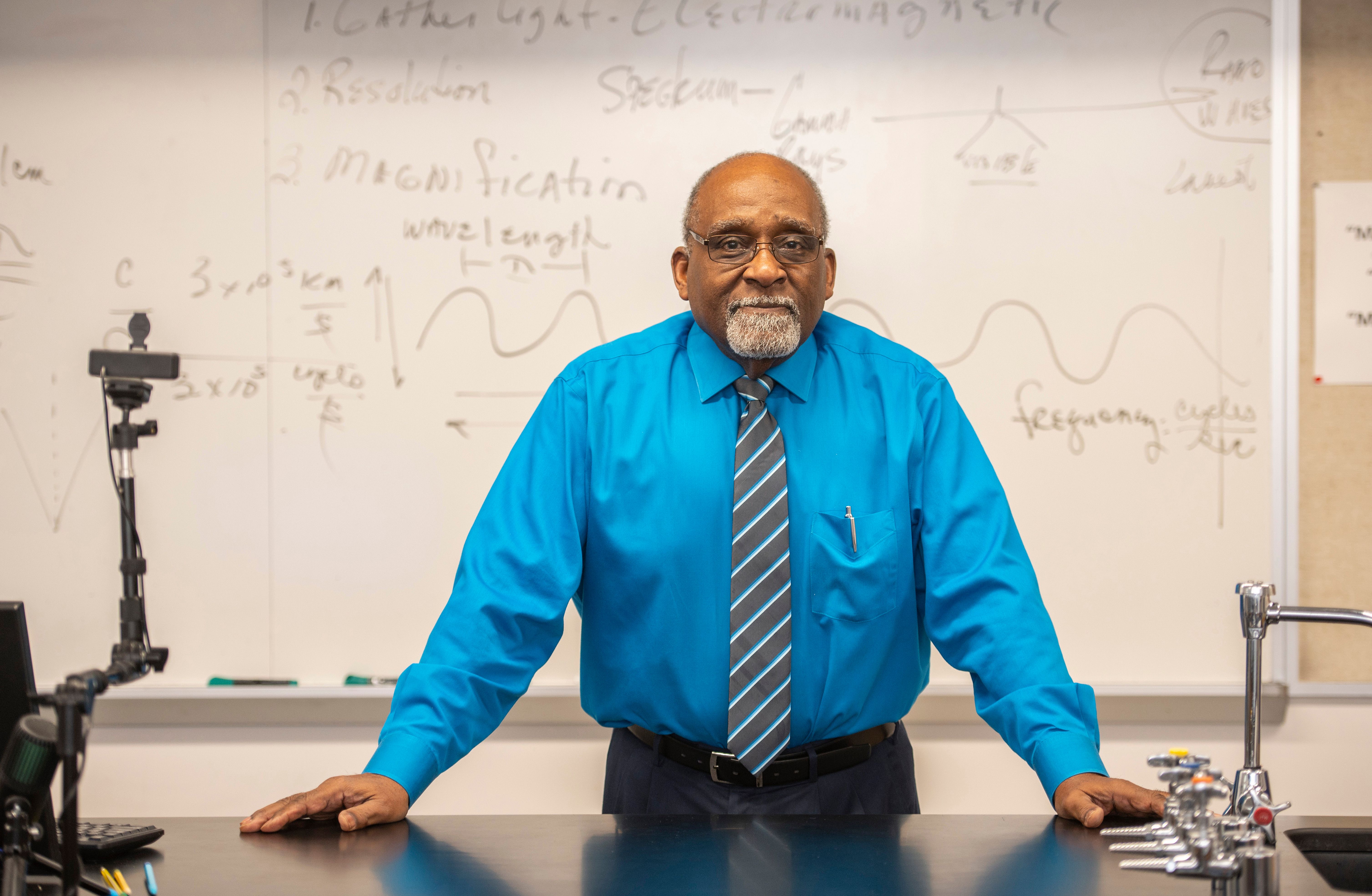Kellogg professor dedicates 50 years to Battle Creek students
MEA member Ronald Smith could have been a science professor at a big, prestigious four-year university, but he chose to spend his 50-year career teaching students at Kellogg Community College in Battle Creek – and that has made all the difference, he says.

Smith retired from his post teaching physical sciences last spring and in June was recognized by the Battle Creek City Commission “for his dedication and service to our community and Kellogg Community College… since 1973.”
Having earned Bachelor and Master of Science degrees in Physics at Indiana State University, Smith could have become a tenured professor – even a distinguished Endowed Chair – at a top university, said his daughter, Charisse Mitchell, CEO of the YWCA West Central Michigan in Grand Rapids.
But that wasn’t where his core values led him, Mitchell said. Instead of a doctorate, he pursued his secondary education certification and eventually taught all kinds of people – from gifted middle schoolers to incarcerated adults, freshman non-science majors, and future career scientists.
“There is a very specific community of students that mean something to him, and he dedicated 50 years of his life to students in Battle Creek because he believed in their potential,” Mitchell said. “He believed education should be open to everyone. And he lived it.”
Smith has taught three generations of students astronomy, physics, physical science, geography and environmental science. He also co-directed an Outdoor Adventure Program that took college students on a six-credit two-week backpacking trip in a National Park – for many their first out-of-state travel.
“This was sleeping on the ground, carrying all their gear, cooking their own food, no shower for two weeks – they would study science and learn much about who they are,” Smith said of the annual summer outing he conducted for more than 30 years.
Getting to know his students was the best part of working at a community college and the reason why he stayed, Smith said. “Instead of large lecture halls, I had small cohorts of maybe 24, 30 students, so I knew my kids – not only as a student but as a person. I knew what they couldn’t understand and how to help them. I knew their ills, and when I saw a need I could respond to it.”
Smith grew up poor in the small community of Jeffersonville, Ind., just across the Ohio River from Louisville, Kentucky, where “everyone was family,” in a loving home that included his four siblings, parents and grandparents, plus an aunt, uncle and two cousins.
Instead of surveillance cameras everywhere, “We had surveillance people back then,” he quipped. His father sparked his interest in science by always encouraging him to ask why and follow his curiosity toward answers. Smith’s great love is for astronomy and the mysteries of the universe.
Having endured struggles as a Black man pursuing a science degree in the 1960s, Smith became active in a Black educators’ caucus of MEA and NEA from the late 1970s through the mid 90s, filling a larger need to “help students at other schools by helping the teachers who were struggling with representation and employment opportunities.”
Smith encouraged others to join the union to take advantage of trainings, resources and networking opportunities that would build strength. Now his granddaughter recently graduated from University of Michigan and is following in his footsteps – she will teach math in Redford starting this fall.
“She understands it may be rough going at first but so worthwhile,” Smith said. “Teaching is a commitment. You’re committed to helping students make their lives into something positive. That’s the light you want to have for them, and if they don’t see the light – tell them to open the door, come in, and let’s talk.”


